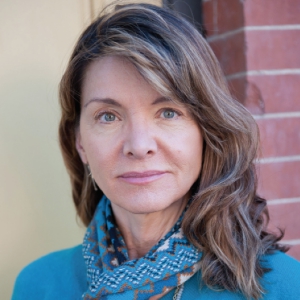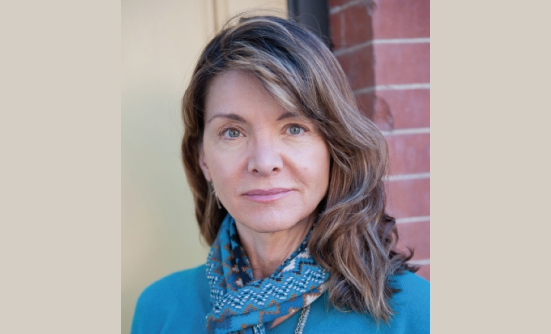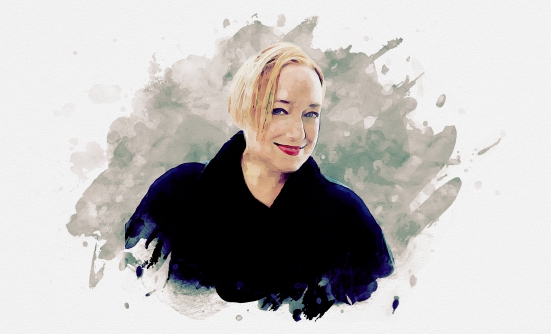
I am a breast cancer survivor who has been enrolled in a clinical trial for more than 3 years now, and I’m alive and well to talk about it. In fact, I want to shout it from the rooftops—clinical trials are good, and the life you save could be your own, along with the lives of many other patients with cancer.
My Breast Cancer and Clinical Trial Journey
In 2000, I received a breast cancer diagnosis. I had a mastectomy, followed by chemotherapy, followed by tamoxifen treatment. In 2007, I had a localized recurrence and underwent radiation therapy, followed by a brief round of Arimidex.
In 2016, after having unexplained weight loss and a persistent, hacking cough, I discovered that the cancer had returned and progressed to metastatic breast cancer; it spread to my right lung and lower spine. I began treatment with 2 FDA-approved drugs—a monthly injection of Faslodex, along with Ibrance in pill form, as well as regular shots of Xgeva, which was given to protect my bones.
In 2018, my tumor marker numbers were increasing. My oncologist at the University of Colorado Anschutz Medical Campus in Aurora suggested that instead of Faslodex I should join a clinical trial to get a new oral drug that is only available in a clinical trial.
My oncologist didn’t have to push me into the trial, because I was open to the idea from the start. With a stage IV breast cancer, this became an ongoing part of my life. I knew that participating in a clinical trial would give me an option to stay well, while also doing something meaningful for the many people diagnosed with breast cancer every day, including advanced cases.
What Are Some of the Concerns?
I was assured that I would receive the standard of care or better, so that wasn’t a worry. My doctor said that I should not be concerned about getting a placebo. In fact, in many cancer clinical trials, you will receive the new drug that is being investigated and not a placebo. So I did not feel I was being a “guinea pig” for the drug company. My monthly doctor visits took on new meaning and purpose greater than myself.
When I asked about privacy, I was assured that I am no more than a number and a part of the study data. I was also told that the study could be months or years. I’ve been participating in the clinical trial for more than 3 years now, and as long as the drug keeps working for me, I can continue to get it. If the study ends without the drug being approved by the FDA, or if it ceases to be effective for me, we will have to find another treatment option. My oncologist has already shared a new study for which I would be eligible and a good fit.
And that brings me to one of the reasons why every patient with cancer ought to consider a clinical trial, not just those with advanced or rare cancers, for whom a clinical trial may be a last option. New drugs bring new treatment options, which bring renewed optimism and hope for patients.
Enrolling in a Clinical Trial
My joining a clinical trial involved a month of onboarding, which entailed weekly visits for CT scans, EKGs, and bloodwork to establish a baseline. I also had to submit a 1-week food diary. A friendly and helpful research coordinator went over all the paperwork with me, and continues to be my guide and liaison.
Once I was enrolled in the study, my treatment resumed a cadence of monthly visits to my doctor’s office for bloodwork, vitals, and getting the next cycle of pills from the hospital pharmacy; study drugs cannot be picked up at any pharmacy. I continue to take Ibrance, and I get an injection of Xgeva every quarter, as well as a CT scan and a bone scan.
My only other responsibilities are to keep the pills refrigerated, record the time I take the medication, and return the empty bottles and completed diary to my research coordinator. Requirements will vary for different clinical trials.
The good news is that I feel great, the small tumor on my right lung has disappeared, and my lower spine is stable. I’ve only had nominal side effects, which have diminished or disappeared over time. I have been living with stage IV breast cancer for 5 years now—I have beaten the odds, and my prognosis is good. My doctor tells me to keep contributing to my retirement plan.
Is a Clinical Trial Right for You?
The more we patients with cancer step forward to help scientists, the more they can help us. A 2019 study published in the Journal of the National Cancer Institute analyzed 13 studies involving 8,883 patients with cancer, showing that only 8.1% of the patients were enrolled in a clinical trial.1
One reason for the low participation is access: you may have to travel a long distance to participate, which can mean time off from work, money for transportation and lodging, or childcare. Another barrier is eligibility, because all clinical trials have exclusion requirements; if you don’t have specific characteristics, you will not be included in the study.
Patient attitudes and lack of awareness may be the biggest obstacles. I hope that sharing my experience will alleviate some of your fears, and bust some common myths about cancer clinical trials.
I recommend asking your oncologist about the resources available through your treatment center, especially if it’s in a university setting. Ask if you are a candidate for a clinical trial, and if any of the current studies would fit your type of cancer and general profile.
You can also research clinical trials online. The National Cancer Institute maintains a free database of cancer clinical trials that you can search, based on your specific cancer, at www.cancer.gov/about-cancer/treatment/clinical-trials/taking-part. However, I recommend a private resource, such as www.TrialJectory.com.
TrialJectory, which was founded by a patient with cancer who benefited from participating in a clinical trial, offers patients a free, user-friendly way to find potential clinical trials for any type of cancer. The process includes a survey with multiple-choice questions to match you with relevant clinical trials. This is invaluable, because otherwise you have to sort through many options that may not be a fit for you.
Have your diagnostic information readily available when you do the survey, which took me less than 30 minutes. Besides the cancer type, you need the cancer stage and other details, such as biomarkers. You can take the survey without this information, but the results will be less specific.
When you get your results, you may share the information about a specific clinical trial with your oncologist. Doctors can’t monitor all clinical trials for all their patients, and it’s important to have your oncologist’s support.
I encourage anyone facing treatment for cancer to explore a clinical trial as a treatment option. My clinical trial participation is extending and improving the quality of my life as a breast cancer survivor, and I feel good knowing that I am contributing to the body of oncology knowledge that will help other patients with breast cancer.
Reference
- Unger JM, Vaidya R, Hershman DL, et al. Systematic review and meta-analysis of the magnitude of structural, clinical, and physician and patient barriers to cancer clinical trial participation. Journal of the National Cancer Institute. 2019;111(3). Doi:10.1093/jnci/djy221.
Key Points
- In many cancer clinical trials, you will receive the new drug that is being investigated and not a placebo
- Each clinical trial will have its own requirements
- A recent study analyzed 13 studies involving 8,883 patients with cancer, showing that only 8.1% were in clinical trials
- Patient attitudes, lack of awareness, access, and eligibility are some obstacles to joining clinical trials
Patient Resources
National Cancer Institute
www.cancer.gov/about-cancer/treatment/clinical-trials/taking-part
TrialJectory
www.trialjectory.com















